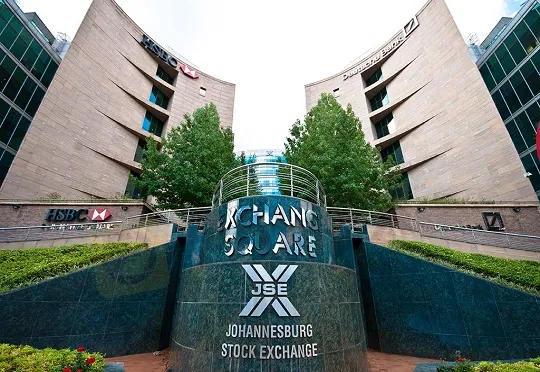简体中文
繁體中文
English
Pусский
日本語
ภาษาไทย
Tiếng Việt
Bahasa Indonesia
Español
हिन्दी
Filippiiniläinen
Français
Deutsch
Português
Türkçe
한국어
العربية
The Johannesburg Stock Exchange (JSE) Amends Debt Listing Requirements
Abstract:The Johannesburg Stock Exchange (JSE) has announced that it has changed its debt listing standards, resulting in the creation of a new Transition Segment and the enlargement of the current Sustainability Segment. The Financial Sector Conduct Authority (FSCA) has accepted these changes, which will take effect on April 11, 2022.
The Johannesburg Stock Exchange (JSE) has announced that it has changed its debt listing standards, resulting in the creation of a new Transition Segment and the enlargement of the current Sustainability Segment. The Financial Sector Conduct Authority (FSCA) has accepted these changes, which will take effect on April 11, 2022.

The Transition Segment will serve as a marketplace for Transition Debt Securities, allowing issuers to raise financing for the climate or transition-related purposes. Transition finance is expected to play a significant role in enabling a just transition and is especially important for a carbon-intensive economy like South Africa in helping us meet our national commitment to the Paris Agreement and the associated goal of being net-zero by 2050 as part of our nationally determined contributions (NDCs).
Sustainability Use of Proceeds Debt Securities or Sustainability-Linked Debt Securities will be used to fund the Transition Debt Securities. Sustainability-linked securities do not require a ring-fencing of proceeds, allowing the issuer to use the proceeds of a capital raise in whatever way it sees fit, as long as it satisfies the agreed-upon goals and targets connected to its sustainability objectives.
These securities are forward-looking and are also known as performance-linked securities. The issuer will be required to report on its performance against its goals on an annual basis, and the cost of capital will be tied to the achievement of these goals via a “step-up” or “step-down” aspect.
Sustainability Use of Proceeds Debt Securities, which require issuers to declare which sustainability assets they will invest the proceeds in, are now listed on the JSEs Sustainability Segment. The JSE enlarged the Green Bond Segment into a full-fledged Sustainability Segment in June 2020, allowing corporations to list social, green, and sustainability bonds on one platform for the first time, as well as allow investors to trade in these securities.
JSEs Sustainability Segment has raised its market capitalization to R21.421 billion since its expansion in 2020, and the introduction of Sustainability-Linked Debt Securities to the Segment will increase market capitalization even more.
Disclaimer:
The views in this article only represent the author's personal views, and do not constitute investment advice on this platform. This platform does not guarantee the accuracy, completeness and timeliness of the information in the article, and will not be liable for any loss caused by the use of or reliance on the information in the article.
Read more

Alleged Concerns with TradeEU.global's Trading Practices
An individual trader has come forward with allegations of an unfavourable experience while using the services of the broker TradeEU.global.

Lured by False Promises: Malaysian Driver Lost RM218K to an Investment Scam
A 49-year-old e-hailing driver in Malaysia fell victim to a fraudulent investment scheme, losing RM218,000 in a matter of weeks. The scheme, which falsely promised returns of 3 to 5 per cent within just three days, left the individual financially devastated.

SFC Freezes $91M in Client Accounts Amid Fraud Probe
SFC freezes $91M in client accounts at IBHK, SBI, Monmonkey, and Soochow over suspected hacking and market manipulation during unauthorized online trades.

Trader Exposes Unethical Practices by STP Trading
A recent allegation against STP Trading has cast doubt on the firm's business practices, highlighting the potential risks faced by retail traders in an increasingly crowded and competitive market.
WikiFX Broker
Latest News
What Makes Cross-Border Payments Easier Than Ever?
Trader Exposes Unethical Practices by STP Trading
Saxo & Portuguese Bank Partnership
SEC Fines Broker-Dealers $275K for Incomplete SAR Filings
Lured by False Promises: Malaysian Driver Lost RM218K to an Investment Scam
FTX Sets March 2025 Timeline for Creditor Payouts: What It Means for Investors
Italian Regulator Warns Against 5 Websites
Mastercard's 2030 Vision: Biometric-Driven, Tokenized Payments
SFC Freezes $91M in Client Accounts Amid Fraud Probe
Bybit Launches Gold & FX Treasure Hunt with Real Gold Rewards
Currency Calculator


